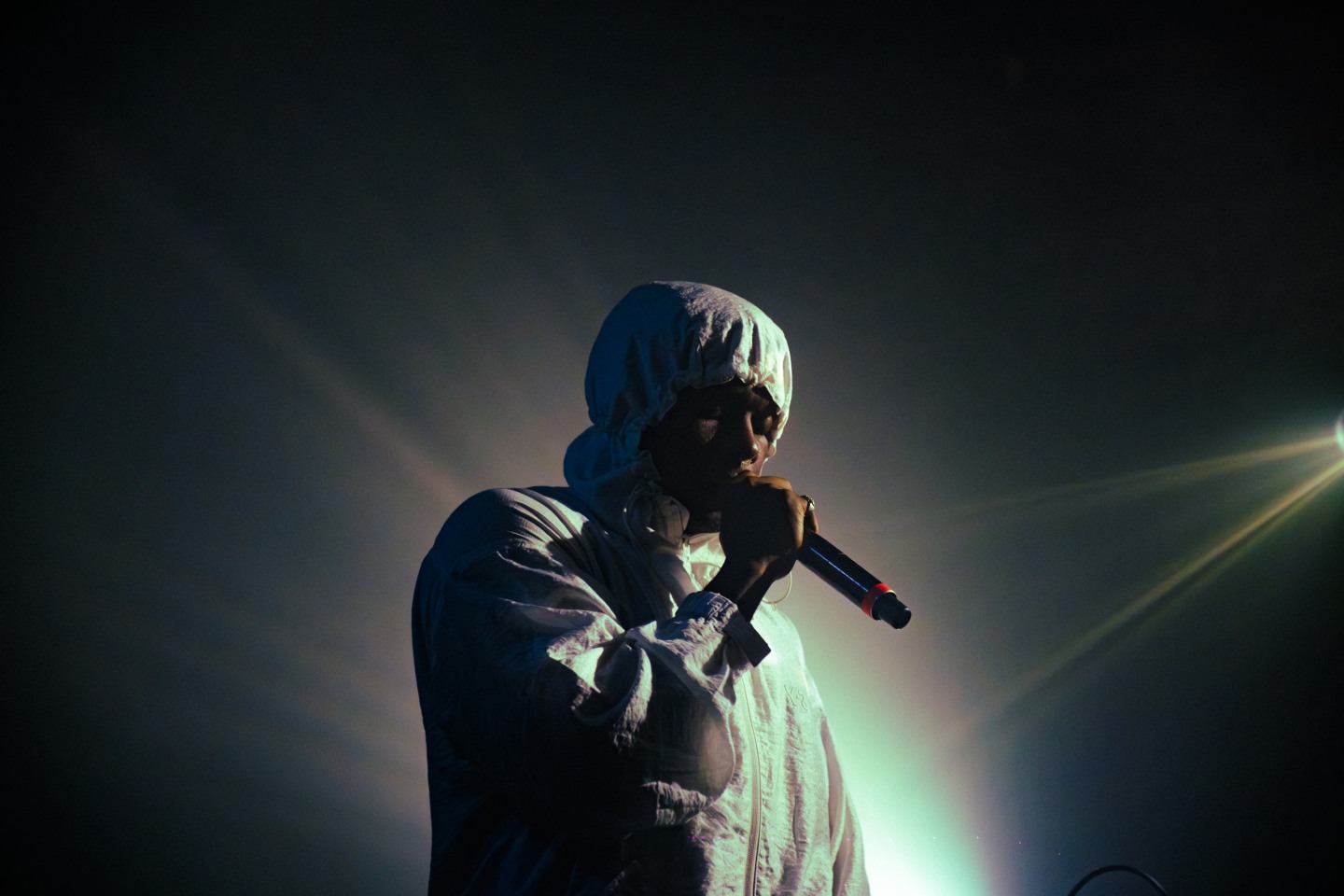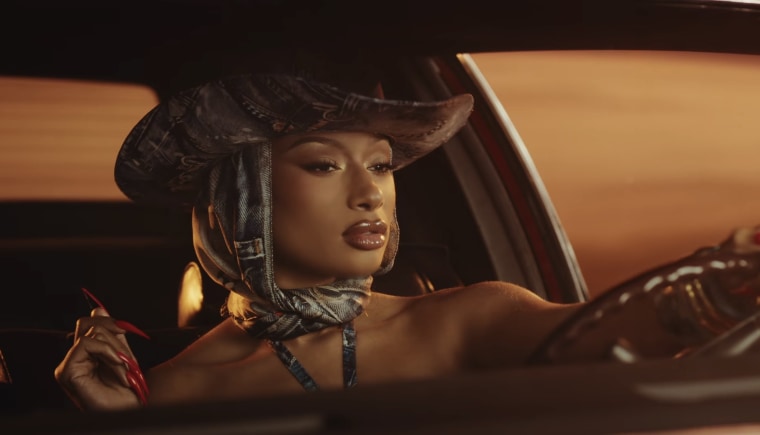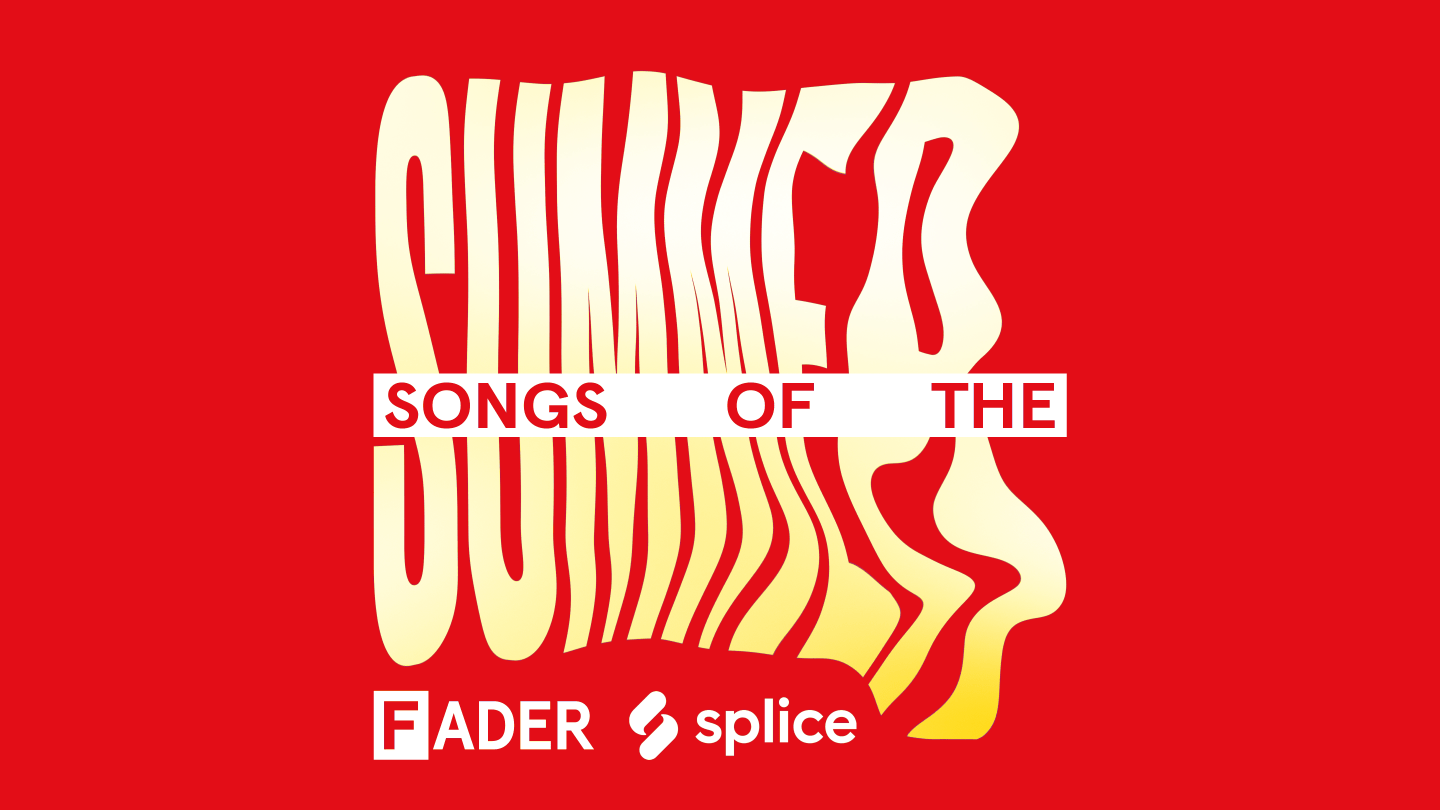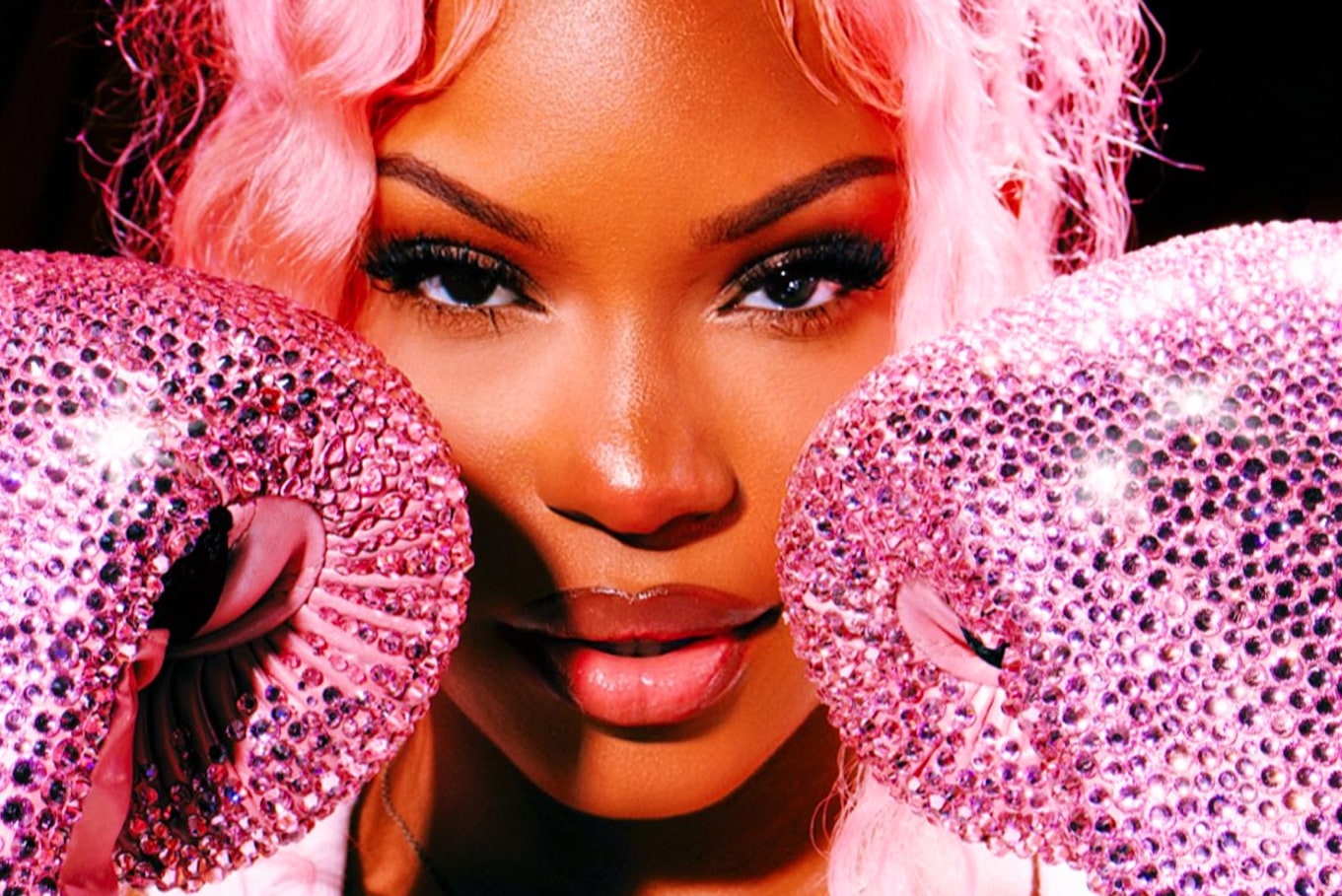Helena Majewska
This story is part of our fall 2025 series, Offline, where we investigate IRL spaces and explore our relationships with music and the internet.
A cross-section of the experimental music elite appears every October in Kraków, Poland to play at UNSOUND, a festival founded in 2003 that’s become a global hub for those operating at the cutting edge in music. This year’s outstanding performances included synth-heavy pop from London collective Tracey; an exercise in b2b DJ brilliance from Gyrofield and Dbridge; footwork from Gary Gwadera and RP Boo; sets from caroline, billy woods, DJ Haram; Nazar; and many more. In the flesh, they shook rooms, busted subwoofers, unsettled, and spurred new connections.
The rich setting, combined with the festival’s theme this year, ://[web], a commentary on the things that connect us on and off the internet, ran in imperfect parallel with our ongoing “Offline” series. So while on the ground, I asked UNSOUND’s standout artists about how they go about cultivating their art while balancing their lives on and off the screen.
Tracey follow their taste
Tracey: In our everyday lives, we both only feel really good when offline. The only social media both of us are using right now is our Insta. Artists are expected to use social media as an extension of their image, which can feel weird, but there’s also a really fun side to getting to interact with people in such a direct way. It’s a double-edged sword.
Follow your taste. Whatever kind of music you love can lead you to a gig, or decade in time or area of the world — past or present — to explore more of. If community is about feeling a part of something bigger than you and learning from one another, then it’s possible to feel that through doing research and listening to music and surrounding yourself (in real life or even just in your head) with the types of musicians and artists that stimulate you.
We love making badges, posters, T-shirts, collages, videos, outfits, CDs with our demos on them. We are blessed to have a tight-knit, small team of likeminded friends, which means we get to have fun with the creative side of it. It also helps to keep us grounded in the craft side of music, instead of the social media side.
Gyrofield builds her community
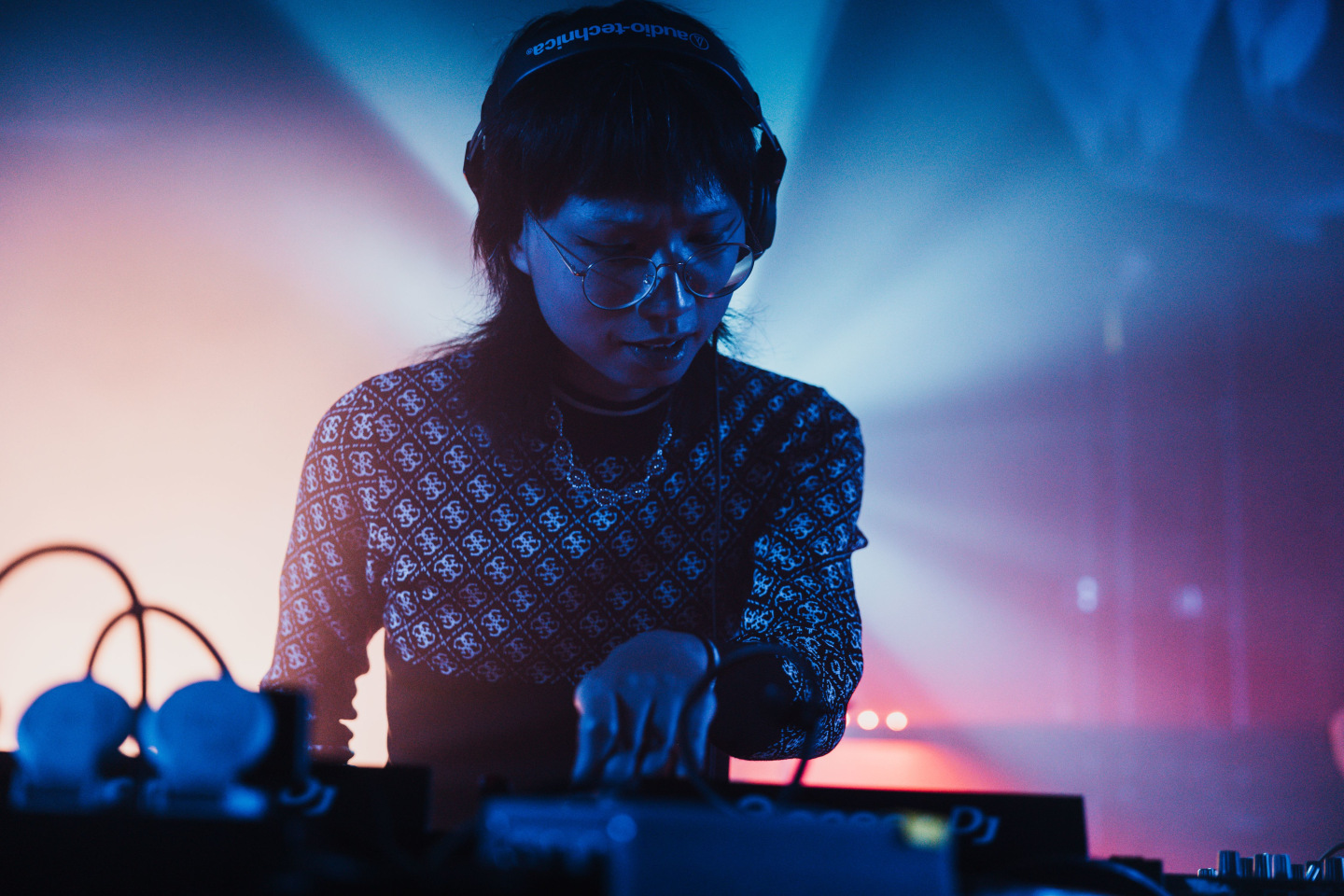
ZUZA SOSNOWSKA
Gyrofield: I’ve always built my social circle out of things I’m interested in. And with music being such an all-consuming thing for me for the past 10 years, I was smoothly going from meeting people I’d been chatting to online to meeting them in real life.
I think real-life spaces still carry more value to people than text, and that finding your group of friends, or even just a few people who can build a support circle for you, is the most important thing. I’m lucky to have that in Bristol through neighbors and friends who are making amazing stuff, and now I’m trying to find my way to it in the Netherlands. It’s a process for everyone, and it’s something that can change with circumstance, so you should never let go or stow yourself away too much. You have to show up and know every part of your scene. A scene is nothing without people who come in — regardless of skill level, regardless of background — wanting to belong somewhere.
Loraine James goes to shows by herself
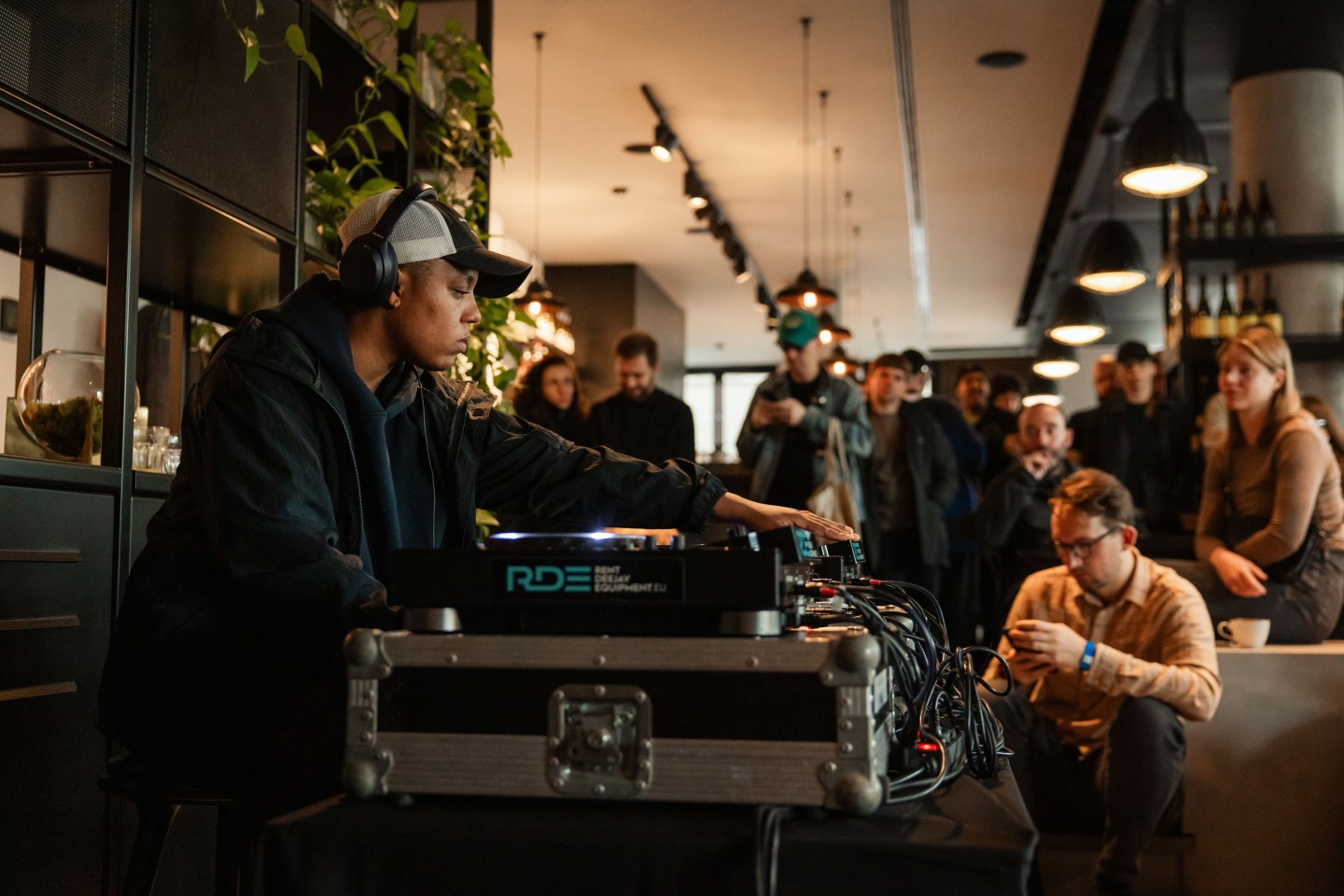
ZUZA SOSNOWSKA
Loraine James: I’m not as offline as I’d like to be in my general life. In my offline life, I’m trying to learn to play chess. I’m trying to read more. I’m trying to learn French, but I’ve been slacking. I try to see friends, but I should also do that more.
You have to know what’s going on, whether it’s right around you or new stuff that’s coming out from different genres. But then you’ve got Instagram, which is terrible. Go to shows. I love just going on my ones to a show. Everyone is into the same thing as you, so it’s easier to strike up a conversation.
Nazar tries not to get caught up in FOMO
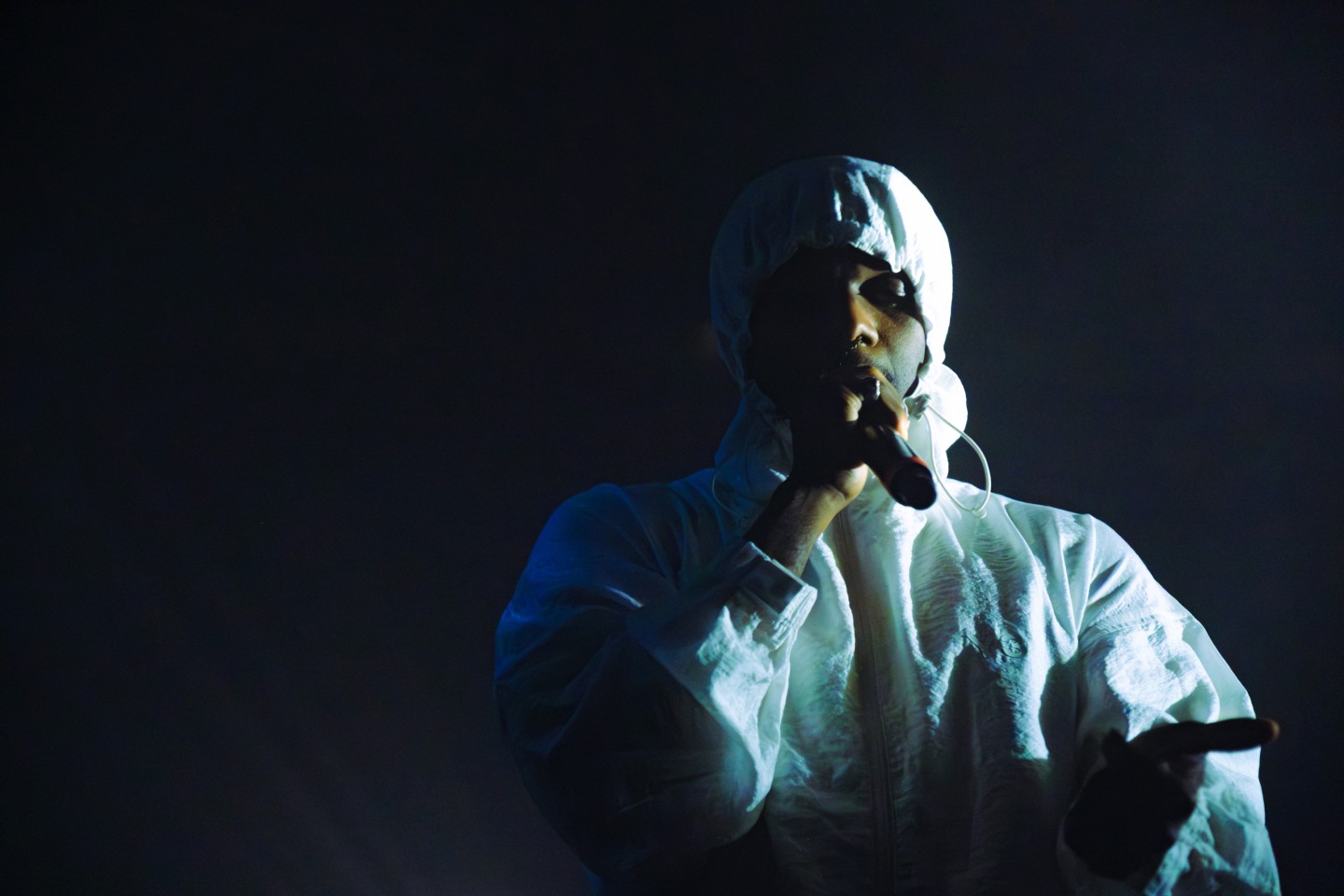
HELENA MAJEWSKA
Nazar: Being an introverted person, I’ve always been wary of appearing online, but music opened me to expressing myself more freely. The thing is, it’s got to a point where I kind of wish to revert back to an offline world. The online community has changed, and everything is more capitalized to make you waste time.
The thing to do is to not get stuck, to not linger in that online space forever, to actually meet up. Make the effort to check out the local clubs, and go where things are happening. That’s where it becomes something organic. And overcome the fear of missing out on things. With the process of releasing my second album, I went through ups and downs and sometimes felt like I’d lost my momentum when I wasn’t posting 10 reels about the promotion of a single. But I kept believing in my craft, and the artistry connected to the album, and good work, which always speaks for itself. Try to find an organic balance that goes according to your mental needs.
RP Boo leans into their uniqueness
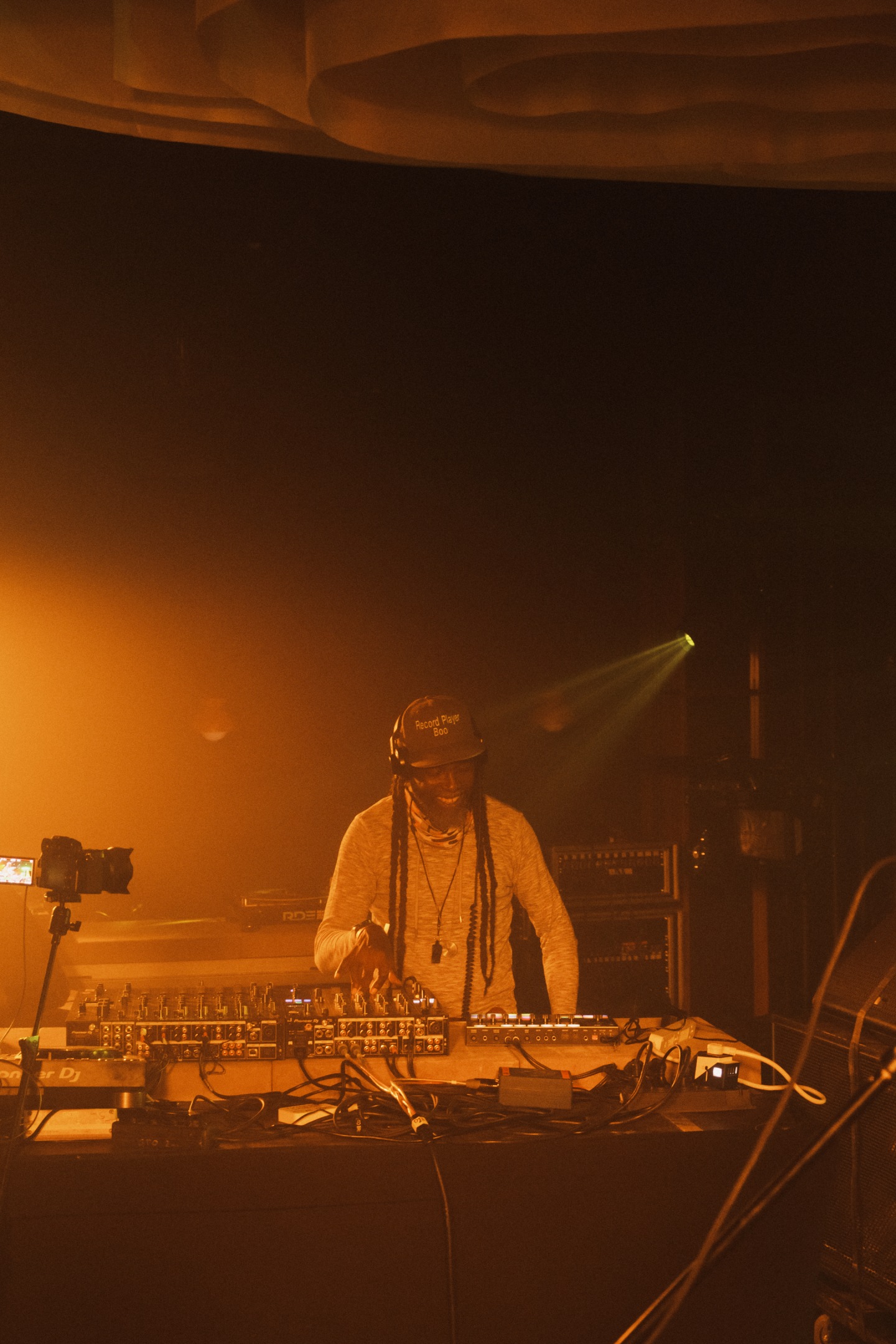
MATTIA SPICH
RP Boo: When I’m “offline,” meaning from work, I’m listening to music — not my genre of music, but music from where I was born, from the soul; that’s what keeps me motivated. I’ve learned to accept that, and that makes me able to do better things and to control my future.
When I started making tracks, the music was a new creativity. I was afraid to play them, but once I played them, [people] were blown away. The samples I chose to use were probably older than the people who were at the parties, and they were not being played on the radio anymore. That’s offline.
Be what’s new that the people are looking for. Don’t be afraid to create things that are not noticeable because when you’re being creative without following the norm, that’s how new genres are created. Don’t be afraid to put yourself out there and be authentic. Discover who you are. The more you present yourself, you will find your identity. And when you do find that identity, you will know that you are totally different.
caroline uses the internet — but for real connection
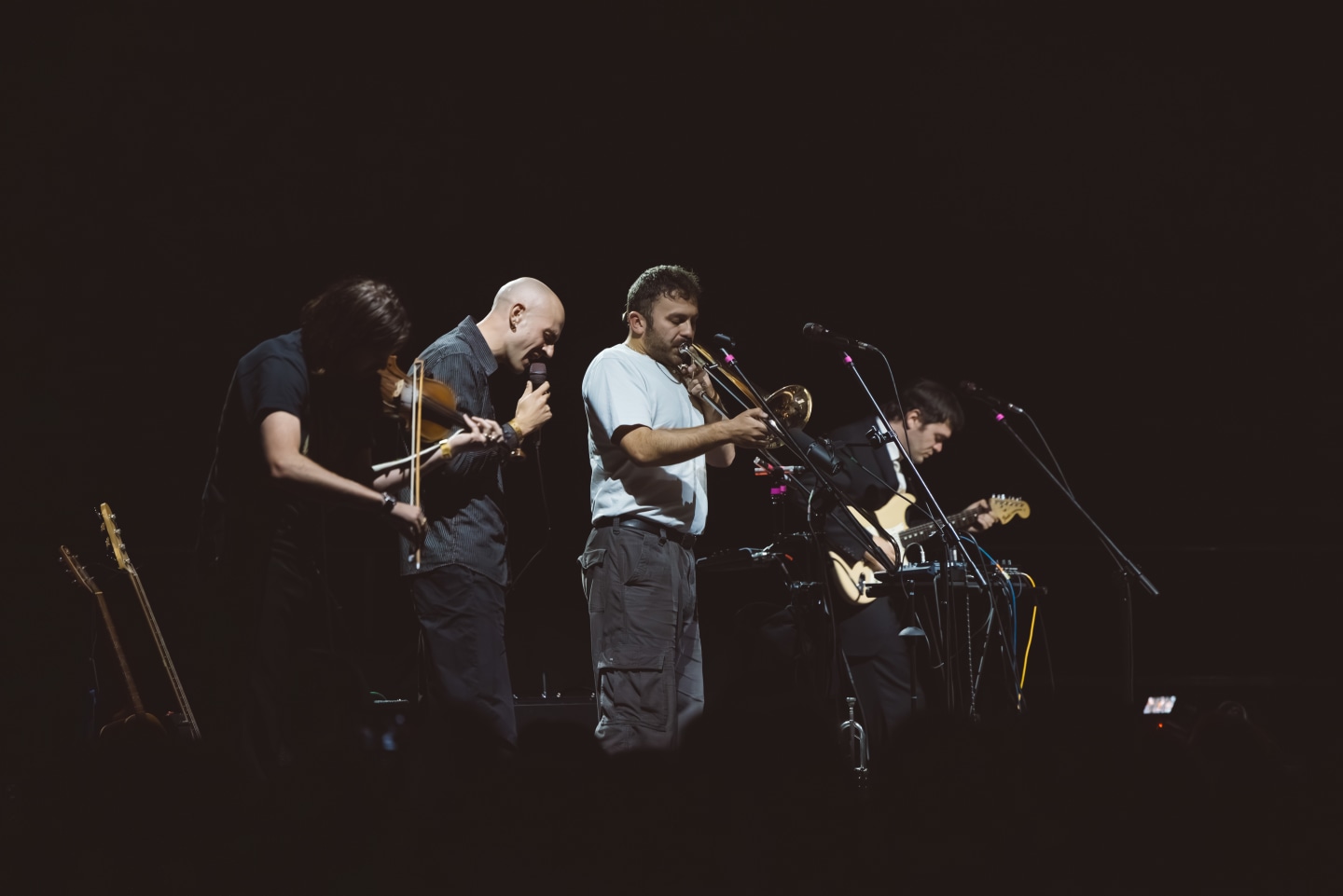
Casper Hughes: I suppose a massive component of our band is organizing ourselves online. 95% of what we do is talking to each other and sorting things out via Facebook Messenger.
Jasper Llewelin: You’re all online at the same time one evening, and someone uploads a demo, and then you’re all [listening to it] at the same time, having an individual experience but also a collective experience of excitement. That’s what we did today.
Hughes: But the magic didn’t happen online, my friend. The magic happened in person.
Mike O’Malley: When I was a child, I had some friends who were much older who were obsessed with music as well, but no one my age was obsessed with music, and I did so much chatting online to people about music. I did actually have an online community, and it was a really precious thing — I was so much more online when I was 12 than I am at 32 — so I don’t want to discredit the kind of online music communities that can form if you’re younger or living in a smaller town where you don’t know so many people who are into music.
Huges: Because of the internet, there’s more osmosis between genres, and people are less siloed in that sense. You’re not just in your scene with no way of branching out or getting immersed in something else. There’s something to be said for how that has led to a certain kind of experimentation and a desire to shed your identity as a goth or whatever.
billy woods (and his friends) show up
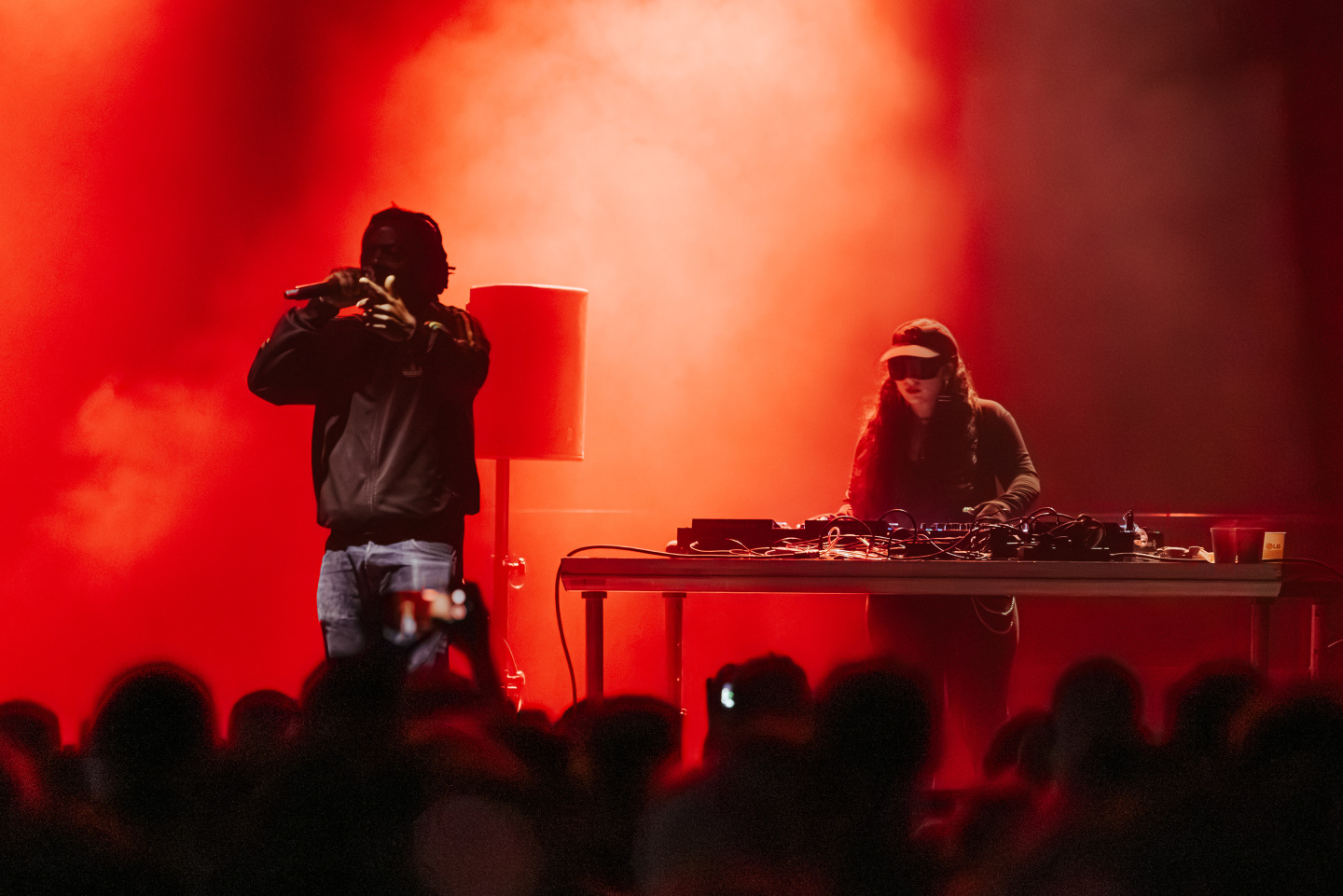
MICHAŁ MURAWSKI
billy woods: I read the news. Unfortunately I follow the Chicago Bears and go every day to look how bad we’re doing. In terms of social media, not much. I run a record label and I collaborate with lots of artists, so it’s a shit ton of emails and admin stuff that’s online, and a lot of communication with other artists is taking place in that space.
I can only speak from observing, but I think about somebody like Fatboi Sharif, who’s just there at every single thing that ever happens: He’s at shows. He’s at events. He comes to studio sessions. That’s how he moves. But Sharif also has a certain personality where people want him around, so I can’t say that that would work for everyone. If you’re weird, maybe the beneficial thing is to not be around and be weird, and maybe people will be intrigued by that aspect of things. I think about Lil Ugly Mane… I’m still not really sure what dude looks like, which I guess is a strange thing for me to say. There’s no one size fits all.

